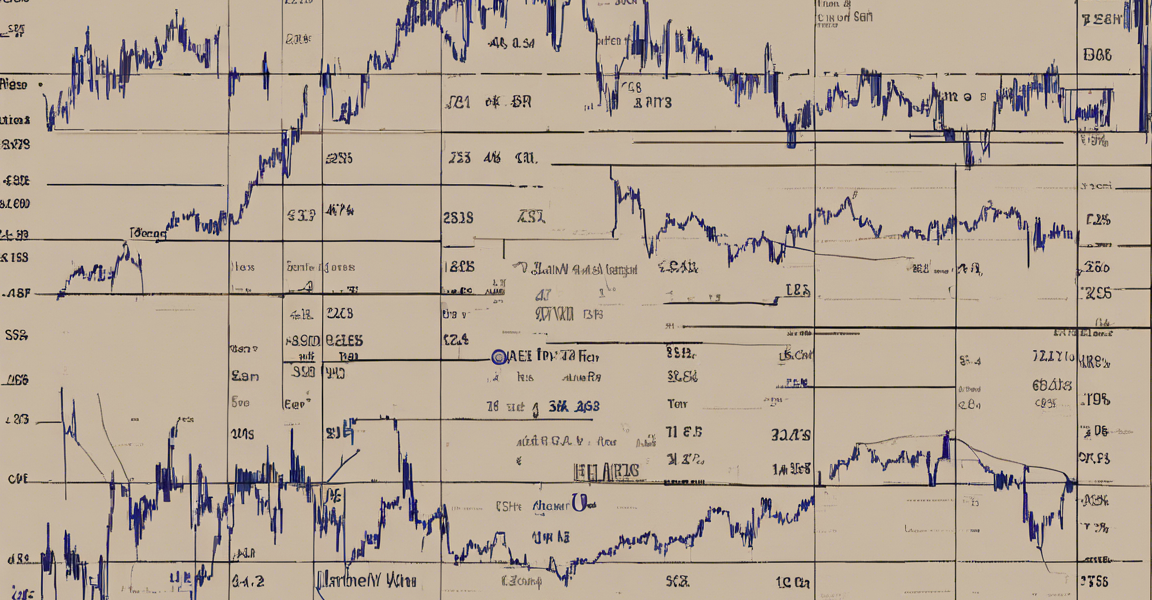As an investor, understanding how to analyze emerging market (EM) share prices is crucial for making informed decisions and maximizing returns. Emerging markets offer unique opportunities for growth and diversification, but they also come with higher risks compared to developed markets. In this article, we will delve into the key factors to consider when analyzing EM share prices and how to unlock the potential for profitable investments.
Factors Affecting EM Share Prices
Economic Indicators
- GDP Growth: The overall economic growth of the country can have a significant impact on share prices.
- Inflation Rate: High inflation can erode returns for investors, leading to a decrease in share prices.
- Interest Rates: Changes in interest rates by central banks can influence investor sentiment and stock prices.
Political Stability
- Government Policies: Political stability and favorable government policies can attract foreign investments, boosting share prices.
- Geopolitical Risks: Political turmoil or conflicts can lead to uncertainty in the markets, causing share prices to fluctuate.
Market Sentiment
- Investor Confidence: Positive market sentiment can drive share prices higher, while negative sentiment can lead to sell-offs.
- Foreign Investment: Foreign capital inflows can impact share prices in EMs, as they are more reliant on external funding.
Currency Fluctuations
- Exchange Rates: Changes in exchange rates can affect the competitiveness of EM companies in global markets, impacting share prices.
- Currency Devaluation: Currency devaluation can lead to higher import costs for companies, potentially lowering share prices.
Industry Specific Factors
- Sector Performance: The performance of specific industries such as technology, finance, or commodities can influence share prices.
- Regulatory Environment: Changes in regulations can impact industries differently, affecting share prices accordingly.
Analyzing EM Share Prices
Fundamental Analysis
- Earnings Growth: Assessing the growth potential of companies in EMs based on their earnings growth can help determine if share prices are undervalued or overvalued.
- Price-to-Earnings Ratio: Comparing the P/E ratios of EM companies to their historical averages or to peers can provide insights into valuation.
- Dividend Yield: Evaluating the dividend yield of EM stocks can indicate the potential income for investors.
Technical Analysis
- Trend Analysis: Studying price trends and patterns can help identify opportunities to enter or exit positions in EM stocks.
- Support and Resistance Levels: Identifying key support and resistance levels can assist in making informed decisions on buying or selling shares.
Risk Management
- Diversification: Spreading investments across different EM countries, industries, and companies can help mitigate risks associated with individual stocks.
- Stop-Loss Orders: Implementing stop-loss orders can limit potential losses in case share prices move against your position.
Macro-Economic Analysis
- Global Economic Trends: Monitoring global economic indicators and trends can provide context on how EM share prices may be influenced.
- Commodity Prices: Understanding the impact of commodity prices on EM economies and companies can guide investment decisions.
Unlocking the Potential for Profitable Investments
Long-Term Perspective
- Investment Horizon: Taking a long-term view when investing in EMs can help ride out short-term volatility and capture potential growth opportunities.
- Emerging Trends: Identifying emerging trends in EM industries such as technology, e-commerce, or renewable energy can lead to profitable investments.
Research and Due Diligence
- Company Analysis: Conducting thorough research on individual companies in EMs, including their financials, management team, and competitive position, is essential.
- Country Risk Assessment: Evaluating country-specific risks such as political instability, economic volatility, and regulatory changes is vital for making informed investment decisions.
Stay Informed
- Market Updates: Staying informed about market developments, economic indicators, and geopolitical events in EMs can help anticipate potential changes in share prices.
- Expert Insights: Seeking advice from financial analysts, investment advisors, or EM market experts can provide valuable insights for making investment decisions.
Frequently Asked Questions (FAQs)
- What are the main risks associated with investing in EM share prices?
-
The main risks include political instability, currency fluctuations, regulatory changes, and economic volatility in EM countries.
-
How can I mitigate risks when investing in EMs?
-
Diversifying your investments, conducting thorough research, implementing risk management strategies, and staying informed can help mitigate risks.
-
Are there specific industries in EMs that offer better investment opportunities?
-
Industries such as technology, finance, consumer goods, and renewable energy are known to offer growth opportunities in EMs.
-
How important is it to consider currency fluctuations when analyzing EM share prices?
-
Currency fluctuations can significantly impact the returns of foreign investors in EMs, so it is essential to consider exchange rate movements.
-
What role does geopolitical stability play in influencing EM share prices?
- Geopolitical stability can attract or deter foreign investments in EM countries, influencing investor sentiment and share prices accordingly.
In conclusion, analyzing EM share prices requires a comprehensive understanding of economic indicators, political stability, market sentiment, currency fluctuations, and industry-specific factors. By conducting thorough research, implementing risk management strategies, and staying informed about market developments, investors can unlock the potential for profitable investments in emerging markets.

